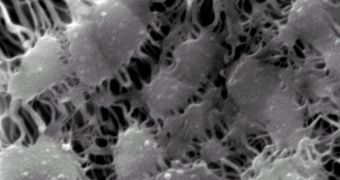A surgery can be performed very well, but one of the most dangerous side effects are infections. Only in US, each year 2 million people get infected while in the hospital and over 90,000 die. This number is much higher in developing countries, with less technology and less hygienic conditions.
Penicillin could be employed now in a coating as a novel weapon against bacteria for medical implants and the surgical instruments, an approach that could save many lives.
This innovation is the work of a team at the University of Southern Mississippi, led by polymer science professor Marek Urban in the School of Polymers and High Performance Materials.
"This is the first study to show that antibiotics can be attached to a surface. We have developed a way to modify a surface to allow penicillin to be attached to varying lengths of "spacer molecules" - this results in a spongy surface that mimics Mother Nature. When a bacteria lands and attempts to form a deadly microbial film, the penicillin molecules surround the bacteria and disrupt this process." said Urban.
The chemical side of the research permitted the drug to be bound and change the surface linked to the application.
"Through laboratory experiments, we demonstrated that the penicillin-coated surfaces were highly effective against Staphylococcus aureus, one of the most deadly and pervasive causes of staph infections. The process of sterilization of surgical instruments isn't 100 % effective. Bacteria get resistant to this type of environment, so the problem becomes more pronounced. If sterilization were completely effective, there wouldn't be thousands of people who die each year from infections caught in the hospital." added Urban.
"The process could be expanded to different antibiotics, which is critical since so many people are allergic to penicillin. Another reason for extending the process to other antibiotics: an estimated 70 % of the bacteria that cause hospital-acquired infections are resistant to some of the antibiotics most commonly used to treat them." he added.
The new coating could also be employed for achieving anti-clotting surfaces, avoiding blood clots on implants.
"While the development is promising, clinical studies and tests are still necessary before the application becomes a reality," said Urban.

 14 DAY TRIAL //
14 DAY TRIAL //